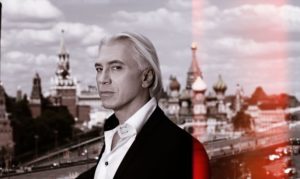
4 Russian Roles Dmitri Hvorostovsky Made His Own
By David SalazarThe last few years have been difficult for baritone Dmitri Hvorostovsky and his beloved opera fans, including yours truly. A brilliant actor with a rich and layered voice, Hvorostovsky is a consummate artist if there ever was one. Even on days when his voice is not at its peak (as was the case at the recent Metropolitan Opera gala), he still knows how to impact the listener in a visceral manner.
Hvorostovsky, born on Oct. 16, 1962, is unfortunately not singing opera any longer. Or at least not for the moment. When he was on the stage he was dominant and the idea that we may never get to experience a full characterization from him again is quite sad. He has given us so many memorable ones in a wide-ranging repertoire, most notably in his native Russian.
As we celebrate the career of this genius on his birthday, let’s look at the Russian roles he has made his own.
Eugene Onegin
Let’s start with the most obvious of them all. For years, Hvorostovsky was THE Eugene Onegin of his time, called upon time and again to essay Tchaikovsky’s masterpiece. We are fortunate to have been able to see the baritone record the work as early as 1994 under Semyon Bychkov and then see a later interpreted video recorded from the Met. These two recordings allow audiences to see the baritone’s vocal and interpretational development, the title character growing colder and yet more empathetic. It is a shame that his illness robbed audiences of seeing him take on the role 10 years after his previous Met recording to see him further his development of his iconic interpretation.
The Queen of Spades
Another Tchaikovsky opera that the baritone mastered, particularly in the early stages of his career. To put it simply, his interpretation of Prince Yeletsky’s aria, “Ja vas lyublyu” is perhaps the most heart-warming rendition of the number, his elegant legato at its most refined. He made his Met debut with this opera back in 1995, singing it 17 times over a four-year span.
War and Peace
When the Met joined forces with Valery Gergiev to finally premiere this Prokofiev gem, the Russian master turned to Hvorostovsky as his leading man. The baritone joined forces with soprano Anna Netrebko putting on one of the iconic Met showcases of recent times. Little did anyone know, but the two would become a potent partnership onstage throughout their many collaborations thereafter. They also became huge friends.
The Demon
In recent years, the Russian superstar was so renowned that he could pick his projects at will. This obviously allowed him to experiment with often overlooked operas, including Anton Rubenstein’s “The Demon,” which he made his own. I leave you with a performance of the work from 2015 at the Tchaikovsky Concert Hall.
What other Russian roles by Dmitri Hvorostovsky do you love? Let us know in the comments below.


